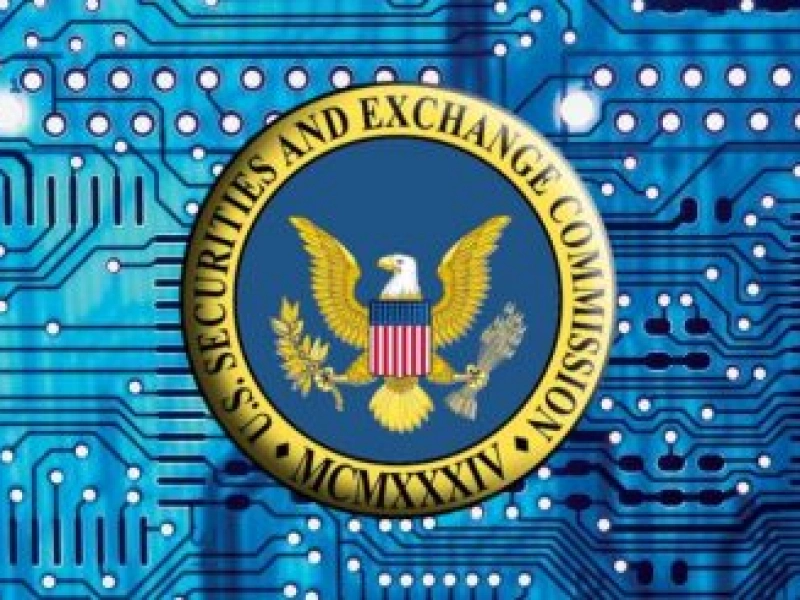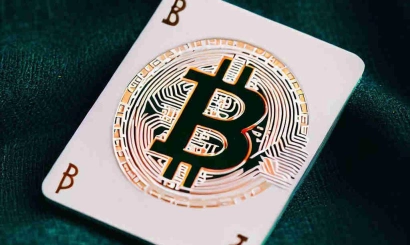What you need to know about Grayscale. Why its trial with the SEC is important for the crypto market
A court decision in Grayscale's case against the SEC over the launch of a bitcoin ETF is expected in the coming days
Grayscale has been suing the SEC since 2021, seeking approval for its own Bitcoin ETF. We tell you how this could affect applications from BlackRock, Fidelity, and other companies awaiting the regulator's decision
This article was published on August 17. On Tuesday, August 29, it became known that the court granted Grayscale's lawsuit against the U.S. Securities and Exchange Commission (SEC), which triggered the bitcoin rate growth by more than 7%.
The notorious lawsuit of Ripple Labs against the U.S. Securities and Exchange Commission (SEC) is not the only one of significance for the cryptocurrency sphere. A decision on Grayscale's lawsuit against the SEC is expected as soon as possible. This decision could strongly influence the position of the main U.S. exchange regulator in relation to applications to launch bitcoin ETFs, the approval of which is considered one of the catalysts for a new bull cycle in the crypto market.
Grayscale hired Michael Sonnenschein, with a wealth of Wall Street experience, as CEO in early 2021. Under his leadership, the company aims to give clients exposure to the Bitcoin market in the form of fund shares backed by billions of dollars in the first cryptocurrency.
However, the process has been delayed. In June, financial giants BlackRock and Fidelity filed applications for their own bitcoin ETFs, and the company's likely court victory could make them market leaders despite Grayscale's status as a crypto pioneer.
Institutional demand
Grayscale has been in operation since 2013. Its founder, Barry Silbert, figured out how to wrap Bitcoin in a form that big financial market investors were used to. At the time, Silbert ran Second Market, a company that offered wealthy investors access to rare commodities like rare wine or pre-IPO shares of tech giants. Seeking to capitalize on the growing interest in cryptocurrencies, Second Market created a new product in the form of a BIT trust to hold bitcoin and then sold shares of that trust to accredited investors.
Buying shares in the trust, later called Grayscale Bitcoin Trust (GBTC), didn't make sense for average cryptocurrency users, but it made good sense for accredited GBTC investors. The shares were bought mostly by organizations that wanted access to bitcoin but for various reasons could not hold it directly. Later, the company launched separate trusts for other cryptocurrencies - Ethereum (ETH), Litecoin (LTC), ZCash (ZEC) and a few others.
As the value of the trust's assets swelled to billions of dollars, the company earned large commissions, and wealthy investors who bought GBTC shares could sell them on the retail market 12 months later, usually at a sizable profit. For investors, the opportunity for arbitrage was enormous. Between 2014 and 2021, Grayscale shares traded at a premium to bitcoin, which served as their underlying asset. If the bitcoin price rose, the GBTC share price followed. Grayscale charges quite high commissions by the standards of the ETF market, but under such conditions they paid off.
The long game
However, the scheme of selling bitcoins through such a trust was initially planned by Grayscale as a temporary solution. In the long term, it was supposed to wait for the development of the regulatory framework for cryptocurrencies in the U.S., and then sell bitcoin to a much wider range of investors in the form of exchange-traded fund (ETF) shares.
The first officially approved spot Bitcoin ETF could be a huge winner. Bloomberg analyst Eric Balchunas estimates that large pension funds and other institutional investors who understand and are accustomed to the ETF form have about $30 trillion concentrated in them, and they could potentially invest 1-2% of that fortune in cryptocurrency.
That's why Grayscale isn't the only one that has been eyeing such an opportunity for a long time. Back in 2013, when bitcoin was trading below $1k, the Winklevoss twins' Gemini was the first company to apply for a bitcoin-ETF, but the SEC rejected it four years later. Then in 2017, Grayscale applied to the SEC to convert its trust into a full-fledged ETF, but then withdrew the application.
A bullish period in the crypto market in 2017 made cryptocurrencies truly popular, but adequate regulation had yet to form around them, and users faced high levels of fraud or hacker attacks. Grayscale stuck to the plan - play the long game and wait for the necessary regulatory infrastructure to emerge.
In October 2021, the company again applied to the SEC for permission to convert GBTC into an ETF, but in June 2022, the SEC rejected that application as well. Anticipating this outcome and realizing that the company's position was becoming increasingly difficult, it went all-in on the same day and sued the SEC, intending to challenge the regulator's decision.
Competition
A court decision is expected any day now, and according to analysts quoted by major business media, Grayscale has a very real chance of winning. In July, the SEC suffered a legal setback when a federal judge rejected its interpretation of securities laws in a case against Ripple Labs. This signaled another possible victory for Grayscale. If it wins over the regulator, Grayscale could break down a major barrier to the creation of bitcoin ETFs, both by the company itself and by other players.
In addition to BlackRock and Fidelity, Invesco, WisdomTree, Bitwise, Ark Investment, and Valkyrie are awaiting approval of bitcoin-ETF applications. That said, regardless of the court's ruling on Grayscale, in theory, the SEC could approve a fund from BlackRock or another company due to its weight in the industry.
- OnlyFans founder OnlyFans disclosed losses from cryptocurrency investments
- U.S. Treasury to introduce tax rules for cryptocurrency
- JPMorgan predicted a "limited downturn" in the cryptocurrency market
- US authorities accidentally sent $55k in cryptocurrency to a fraudster
- Mastercard and Binance will stop cooperating on cryptocurrency cards
- Nodal Power raises $13 million to mine cryptocurrencies in landfills
- Robinhood has become the third largest holder of $3 billion worth of bitcoin




_410x245_00e.webp)


